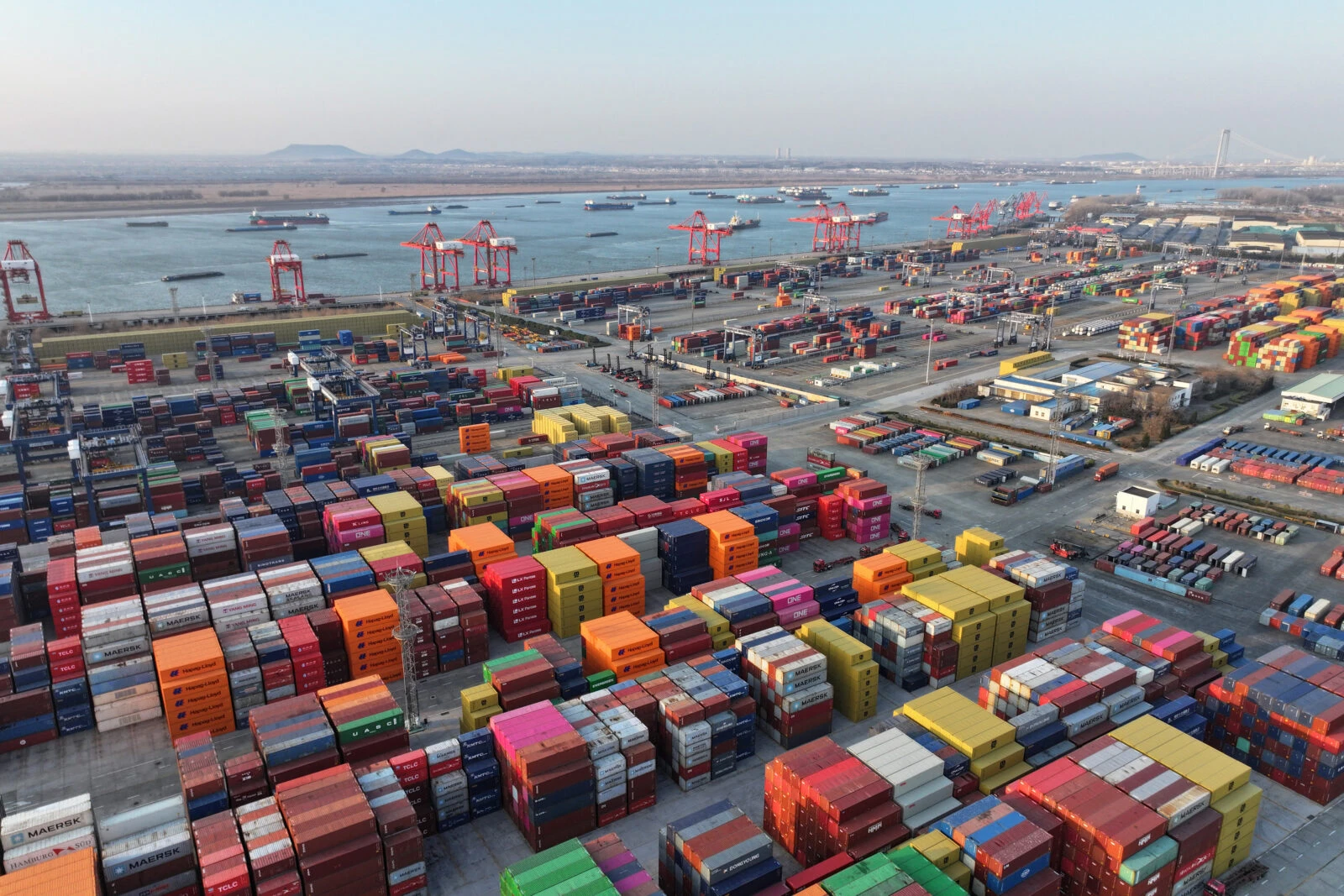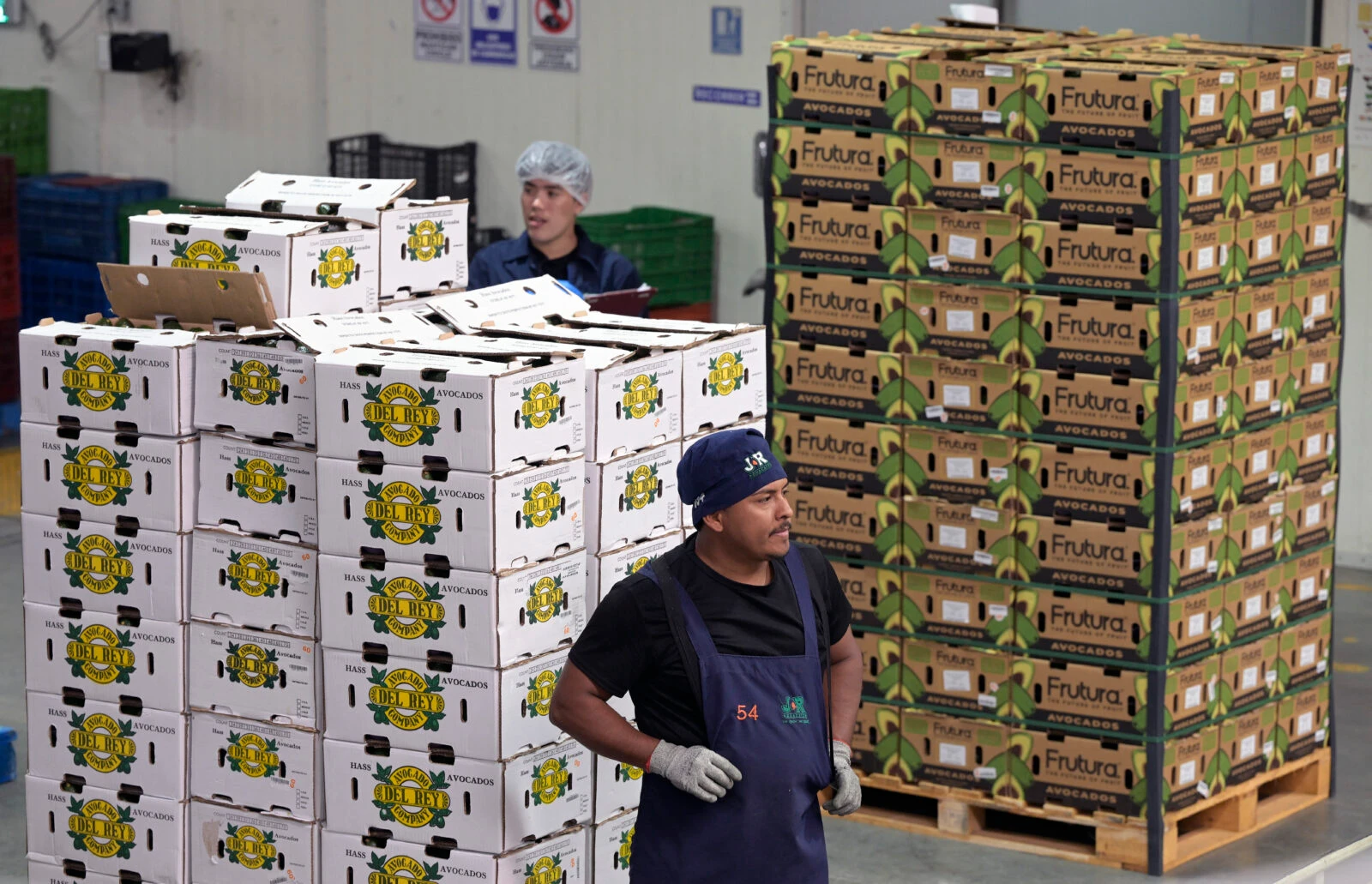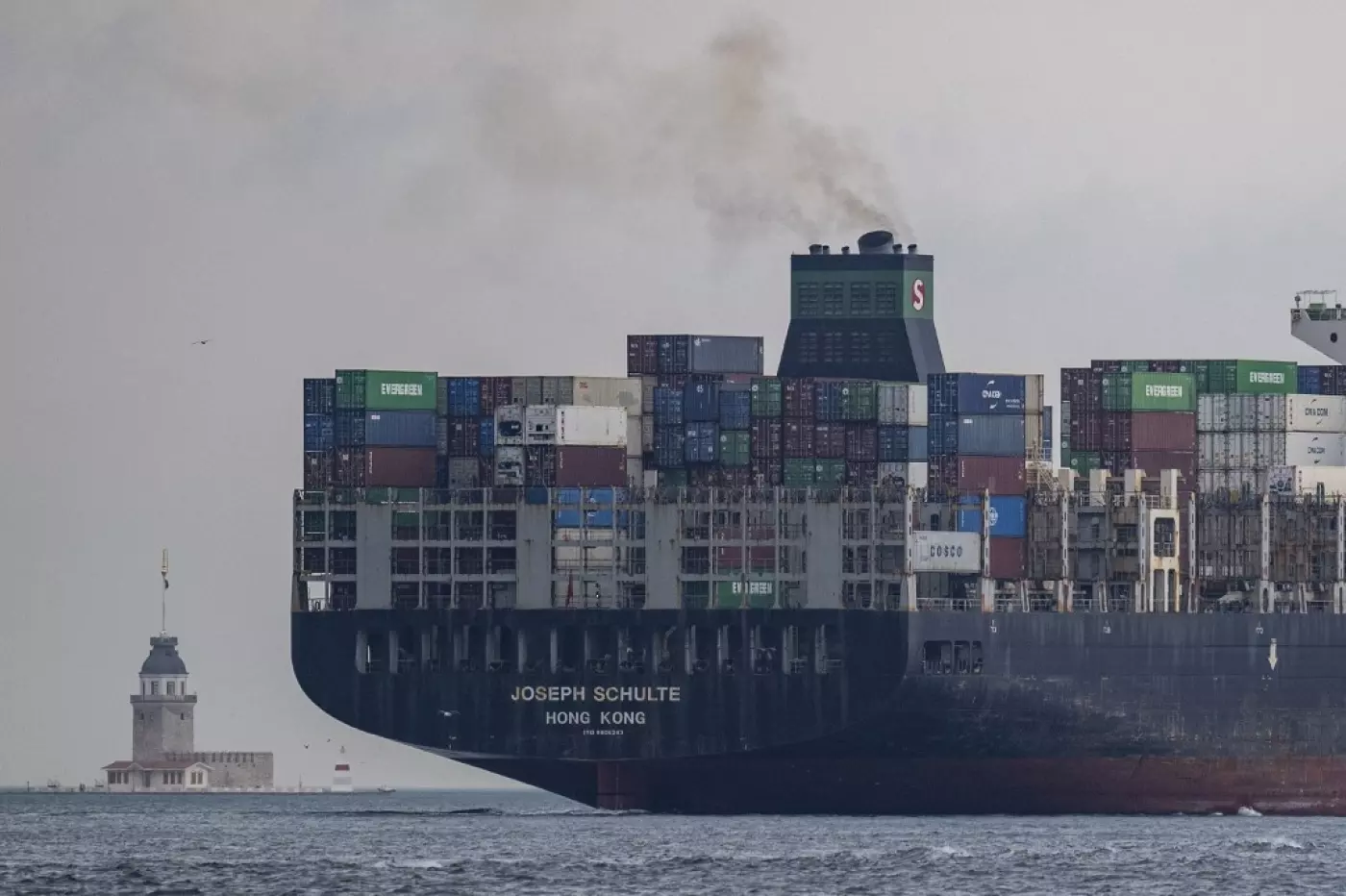How Trump’s tariffs could impact Türkiye’s economy?
 President Donald Trump waves as he walks away after a news conference with Turkish President Recep Tayyip Erdogan, in the East Room of the White House on November 13, 2019 in Washington, DC. (AFP Photo)
President Donald Trump waves as he walks away after a news conference with Turkish President Recep Tayyip Erdogan, in the East Room of the White House on November 13, 2019 in Washington, DC. (AFP Photo)
The implementation of U.S. tariffs under President Donald Trump has sparked concerns over a global trade war and led to significant market fluctuations.
While Trump revoked a 25% tariff on Canadian and Mexican imports, an additional 10% tariff on Chinese goods took effect on Feb. 4.

Escalating trade tensions and global reactions
In response to U.S. tariffs, China announced a 15% tariff on coal and liquefied natural gas (LNG) imports from the U.S. starting Feb. 10, along with a 10% tariff on crude oil, agricultural machinery, and large motor vehicles.
Trump also hinted that European Union goods could soon face tariffs, adding to economic uncertainty.
Experts believe these measures could exert pressure on exchange rates and shift market dynamics, affecting Türkiye’s trade and economic outlook.
What are tariffs and who pays for them?
Tariffs are imposed on imported goods and are paid by importing companies rather than exporting businesses. For instance, if a company imports a $50,000 car and faces a 25% tariff, it must pay an additional $12,500 in duties.
The ultimate burden of these tariffs depends on whether businesses pass on higher costs to consumers. If U.S. retailers increase prices on imported goods, American consumers bear the brunt of the tariffs.
Despite Trump’s claims that tariffs protect domestic jobs and boost tax revenues, his first-term tariff policies did not lead to significant economic growth in the U.S.

Could tariffs affect Turkish Lira?
Analysts speaking to the BBC Turkish, suggest that tariffs could indirectly pressure the Turkish lira. Ecevit Sanli, president of the Turkish-American Business Association (TABA), warned that tariffs could strengthen the U.S. dollar, placing emerging market currencies, including the Turkish lira, under strain.
Sanli also noted that exchange rate fluctuations could impact Türkiye’s foreign trade, making raw material and intermediate goods imports more expensive due to disruptions in global supply chains.
Economist Hayri Kozanoglu echoed these concerns, stating that tariffs might increase U.S. inflation and slow down interest rate cuts by the Federal Reserve. Higher U.S. interest rates make dollar-denominated investments more attractive, causing the dollar to appreciate against major currencies, including the Turkish lira.
However, Kozanoglu believes Türkiye’s high-interest policies aimed at curbing inflation could limit the depreciation of the lira. “The Turkish lira generally does not experience dramatic shifts against its main trading currencies,” he added.

Türkiye’s market share and trade opportunities
The U.S. tariffs on Chinese goods could reduce demand for these products, prompting American importers to seek alternative suppliers.
Wolfango Piccoli, co-president of international consultancy firm Teneo and a geopolitical risk expert, suggested that Türkiye could gain a competitive edge in sectors such as textiles, auto parts, and home furnishings. However, he cautioned that Türkiye’s gains would likely be modest.
Economist Kozanoglu pointed out that China, facing U.S. trade barriers, is redirecting its exports to other regions. Türkiye is not a primary beneficiary of this shift due to higher production costs compared to low-wage economies.
“Türkiye does not hold a special advantage because its labor costs are higher than countries like Bangladesh or Egypt. Additionally, geographically, shifting production to Türkiye is not the most practical option,” Kozanoglu explained.
Former Overseas Private Investment Corporation (OPIC) advisor Faruk Kahraman emphasized that Turkish manufacturers struggle to meet U.S. market demands due to differences in product preferences.
“We have not fully adapted to American consumer expectations, whether in services or goods,” Kahraman noted.
Meanwhile, TABA President Sanli suggested that Türkiye could emerge as an alternative supplier for the U.S. in sectors such as textiles, automotive components, and chemicals.
However, he warned that as China pivots to alternative markets, Türkiye could face intensified competition in key export industries.

Potential impact on Türkiye’s EU trade
Trump’s warning about potential tariffs on EU goods could also affect Türkiye’s economy. If tariffs strengthen the U.S. dollar against the euro, it could lead to a depreciation of the euro against the Turkish lira.
Sanli warned that fluctuations in the euro/dollar exchange rate could affect Türkiye’s export revenues, as Türkiye conducts most of its foreign trade in euros.
Kozanoglu agreed, noting that a weaker euro could widen Türkiye’s current account deficit by reducing its euro-denominated income. He also highlighted that an economic slowdown in Europe, triggered by U.S. tariffs, could weaken demand for Turkish exports.
“Additionally, increased competition in the European market may force Turkish exporters to lower their prices,” Sanli added.
Piccoli estimated that a broad 10% tariff on EU goods could reduce the region’s gross domestic product (GDP) by 0.3% within two years, indirectly affecting Türkiye’s exports.
Financial consultant Kahraman pointed out that Türkiye lacks the capital investment to replace lost EU imports. “China can fill a 100-container order instantly. Türkiye’s fragmented industrial sector struggles to meet such large-scale demands,” he explained.
Kozanoglu further warned that Türkiye’s reliance on exports makes it vulnerable to global trade disruptions. “Rising tariffs globally will increase costs for Turkish manufacturers and negatively impact the economy,” he said.

Impact on Turkish consumers
Kozanoglu noted that while exchange rate stability has prevented sharp increases in import prices, sectors such as apparel, footwear, home appliances, and furniture are highly sensitive to currency fluctuations.
“These sectors are exposed to foreign trade and competition, making them the most likely to be affected by shifts in exchange rates,” he said.
He also pointed out that service inflation in Türkiye remains significantly higher than goods inflation, as service costs are less affected by currency fluctuations.
“While foreign exchange rates impact the cost of goods, they have little effect on services like rent,” he added.
Türkiye’s trade ties with the US and EU
According to the Turkish Trade Ministry, the U.S. was Türkiye’s second-largest export market in December 2024, accounting for $1.5 billion in exports, or 6.4% of total trade.
The EU remains Türkiye’s largest trading partner, with $9.31 billion in exports recorded in December 2024. Meanwhile, China accounted for 12% of Türkiye’s imports during the same period.



